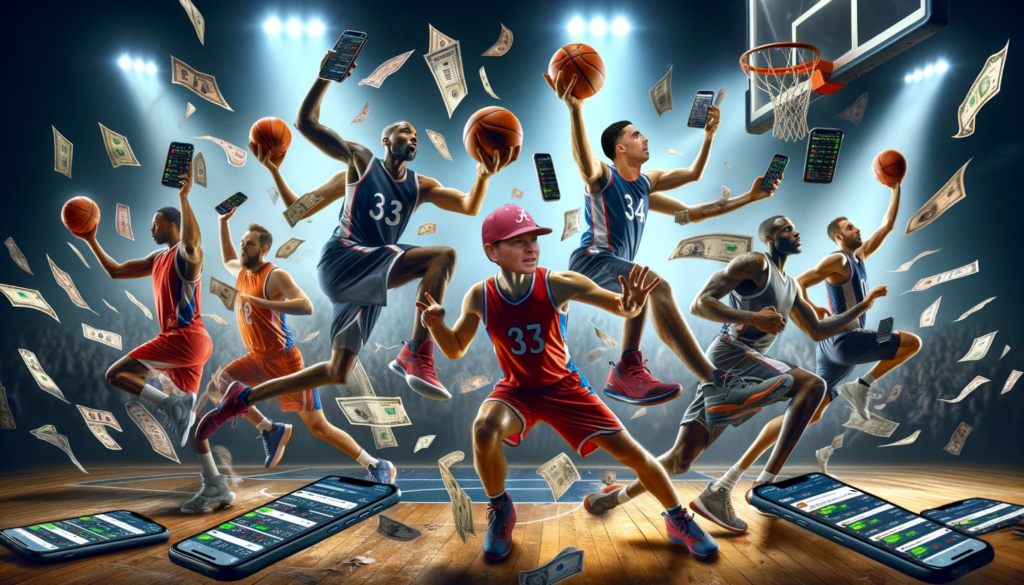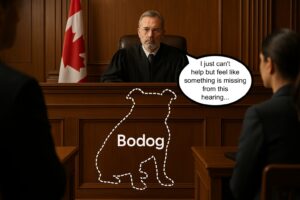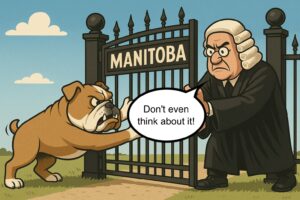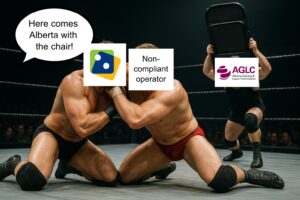The National Collegiate Athletic Association (“NCAA”) bylaws1 (the “Bylaws”) govern the conduct of inter-collegiate athletes in the US. Article 10 of the Bylaws outlines the rules and restrictions related to ethical (or unethical) conduct and explicitly restricts activities related to sports gambling.
The Bylaws define “sports wagering” as “placing, accepting or soliciting a wager (on a staff member’s or student-athlete’s own behalf or on the behalf of others) of any type with any individual or organization on any intercollegiate, amateur or professional team or contest. Examples of sports wagering include, but are not limited to:
the use of a bookmaker or parlay card;
internet sports wagering; auctions in which bids are placed on teams, individuals or contests; and
pools or fantasy leagues in which an entry fee is required and there is an opportunity to win a prize.”2
The Bylaws prohibit student-athletes from engaging in sports wagering activities whether the sports are intercollegiate, amateur, or professional, and the restrictions also extend to prospective student-athletes3, and various staff members including:
Staff members of an institution’s athletics department;
Nonathletic department staff members who have responsibilities within or over the athletics department (e.g., chancellor or president, faculty athletics representative, individual to whom athletics reports); and
Staff members of a conference office.4
Until November 2023, student-athletes who were found to have been engaged in sports wagering activities became ineligible to participate in intercollegiate athletics any further, subject to any appeals for reinstatement.5 For staff, violators of the sports wagering Bylaws would be referred to a panel that would decide the scope of the penalty depending on the severity of the conduct, which could result in a suspension or termination of staff’s participation in NCAA activities.6
In November 2023, the NCAA adjusted the penalties for student-athletes who are found to have engaged in sports wagering.7 The updated reinstatement guidelines outline the new penalties (subject to any appeals) as follows:8
Permanent loss in eligibility for student-athletes who:
Engage in activities designed to influence the outcome or integrity of a game they are playing in (ie. “point shaving”);
Participate in a sports wagering activity on their own team; or,
Knowingly provide information to individuals involved in or associated with any type of sports wagering activities.
Minimum one-season suspension (including loss of eligibility) from competition and mandatory sports wagering rules and prevention education for student-athletes who:
Engage in sports wagering activities involving their own institution, other than their own team.
Minimum ½ season suspension from competition and mandatory sports wagering rules and prevention education for student-athletes who:
Engage in sports wagering activities on their own sport at another institution.
For all other violations of the sports wagering Bylaws by student-athletes:
$200 or less wagered: participation in sports wagering rules and prevention education;
$200.01 – $500 wagered: 10% of one season suspension and participation in sports wagering rules and prevention education;
$500.01 – $800: 20% of one season suspension and participation in sports wagering rules and prevention education;
Greater than $800: 30% of one season suspension and participation in sports wagering rules and prevention education.
Greatly exceeding $800: possible permanent ineligibility.
For any violations where student-athletes receive winnings with any sports wagering activity, the student-athlete must make repayment in the full value received.
Given the scope and size of the NCAA, it’s not surprising that there have been multiple sports betting infractions since the US Supreme Court struck down the federal prohibition on sports betting.9 In July 2023, the Associated Press announced that the NCAA president found 175 sports wagering infractions since 2018.10 In the last year, there have been two notable instances of suspensions that occurred in the NCAA:
In the summer of 2023, 15 student-athletes and staff from Iowa and Iowa State were the subjects of a sting operation by the Iowa Division of Criminal Investigation.11 Some of the allegations included that the defendants placed bets on their own teams (or their own teams’ opponents), their own institutions, and were underage while gambling.12 Many of the athletes were not just faced with suspensions by the NCAA, but were also subject to criminal charges and fines due to underage gambling charges.13
On May 4, 2023, Brad Bohannon, the former head coach of Alabama Crimson Tide’s men’s baseball team, was fired after providing information to a known bettor – Bert Eugene Neff Jr – that Alabama would be scratching its’ starting pitcher, prompting Neff to place a $100,000 wager on Alabama’s opponent.14
The NCAA suspended Bohannon from NCAA coaching activities for 5 years with a 15-year show-cause order, meaning that if another school wanted to hire Bohannon within the next 15 years, Bohannon would still have to sit 100% of the team’s games over his first 5 years of employment.15
The above cases are far from the only gambling violations by student-athletes, even before the laws around sports betting in the US changed. For example, in 2014, 3 University of El Paso Texas were dismissed from their team for betting on NBA games after following an FBI investigation.16 Ten years earlier, two Arizona State basketball players, Stevin Smith and Isaac Burton Jr, shaved points during 4 games of the 93-94 NCAA basketball season, which resulted in both of them serving jail time.17
Given the greater accessibility of sports betting across the United States since 2018, it’s encouraging to see that the NCAA has provided more leeway to student-athletes regarding sports wagering infractions by changing the reinstatement guidelines this past year. The NCAA likely recognized that since sports gambling has become more accessible and acceptable due to the legal reform of sports gambling laws across the US, student-athletes should not automatically become ineligible for engaging in legal sports-wagering activity which is not related to NCAA sports. However, as mentioned above, student-athletes still need to be cognizant of sports-wagering on professional sports which has the $800 threshold, and also should avoid any NCAA wagering activity, including even filling out a March Madness bracket. As the laws continue to change across the US, it will be interesting to follow how the NCAA monitors and evolves its sports wagering rules.
If you would like to talk about the sports betting laws in your jurisdiction, please don’t hesitate to contact GME Law.
1 National Collegiate Athletics Association Division I Manual, 2023-2024 [hereinafter the “ByLaws”].
2 The Bylaws, at Article 10.02.1.
3 Ibid at Article 10.4.
4 The Bylaws, at Article 10.3.
5 See note 3.
6 Ibid at Article 19.12.1.
7 DI approves modifications to wagering-related reinstatement guidelines, NCAA, November 8, 2023.
8 NCAA Division I Committee on Student-Athlete Reinstatement Guidelines at Section 2, NCAA, December 2023.
9 Murphy v National Collegiate Athletic Association, 584 U.S. 453, decided May 14, 2018.
10 Mark Anderson, There Have been 175 Sports-Betting Violations Since 2018, NCAA Head Says, Associated Press, July 12, 2023.
11 Pat Forde, Iowa and Iowa State Athletes were Busted for Betting. But Why Were They The Only Ones? Sports Illustrated, September 8, 2023.
12 Updated list of Iowa, Iowa State Student-Athletes Charged in Sports Wagering Investigation\, KCCI Des Moines, December 13, 2023.
13 Anna Kutz, Iowa Sports Betting Investigation: Here are the Student Athletes Charged, We Are Iowa, February 2, 2024.
14 Pat Forde, Inside the Alabama Baseball Gambling Scandal, July 10, 2023.
15 John Zenor, NCAA Places 15-Year Show Cause Against ex-Alabama Baseball Coach Broad Bohannon in Gambling Case, February 1, 2024.
16 Nicole Auerbach, Three UTEP players kicked off the team for betting, USA TODAY Sports, January 7, 2014.
17 Point-Shaving Scandal Hits Arizona State, Los Angeles Times, December 6, 1997.




